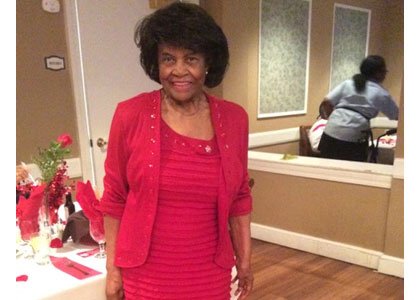At age 86, Julia Clark is still working hard as an advocate with a stern resolve to see any task through.
Only these days, Clark, a former Department of Housing and Urban Development employee who has arguably done more for African Americans in Prince George’s County than anyone, advocates from the Arbor Terrace Greenbelt Senior Living Community in Lanham. Clark is the head of the senior living’s resident council as well as the Ambassador’s Committee there.
“Seven days a week, 24 hours a day, I’m available, I keep my button on,” Clark said. “When people come in, whether it’s with Alzheimer’s or whatever it is, I work with them to help them adjust to the new community.”
While Clark is beloved at Arbor Terrace, she has long cemented a legacy of helping to shape Prince George’s County.
She arrived in Prince George’s County in 1939 and she went on to play a key role in the economic development of the county, now the wealthiest African-American majority county in America.
Clark helped to start the first child care center at HUD and served as president of the South County Economic Development Corporation, a civic association that endorsed a “shop at home” campaign in the late 1990s.
“Everybody would go and shop elsewhere and I said why not shop at home. So we got a campaign started and we were telling everyone to shop at home,” Clark said.
The county was already considered one of the wealthiest suburbs in the country, with a median household income exceeding the national median by about 25 percent but was underserved by upscale retailers.
“They [county residents] were traveling to places like Virginia and Annapolis to shop at stores like Nordstrom or Neiman-Marcus, which had no locations in Prince George’s County. I said that had to change and we were able to get malls and shopping plazas here,” she said. “Now, we got National Harbor, Shoppes at Brandywine and other places. We’re doing good.”
Among her biggest accomplishments, Clark said, was helping to fundraise and campaign for Wayne Curry, who became the first black county executive in 1994.
“We believed in Wayne Curry and we were able to bring big business back and he was instrumental in getting National Harbor in here because there were too many people who didn’t want big business, they were afraid,” Clark said.
Clark was also a driving force behind the stadium in Landover and she served as a member of the committee tasked with building the Wayne Curry Learning Center. The contributions that she has made in shaping African American life in the county are rarely lost on those who know her. However, while many often clamor for low-income housing, she once led a group that sought high-
income housing.
“That was important. I said we need million dollar homes and we got them and now look, Prince George’s County happens to be the richest majority African American county in the country,” Clark said.
Clark was influenced by Gladys Noon Spellman, the late former Congresswoman, who successfully spearheaded many efforts to effect social and political reform in all facets of life for her Prince George’s County.
Clark led successful efforts to get the Baltimore-Washington Parkway dedicated in Spellman’s honor.
“She got me interested in working in the country and she got me interested in working beyond the county and inside our communities,” Clark said.
Born in Wilson, North Carolina, Clark grew up with seven brothers and sisters, two of whom are still alive. She attended college in El Paso, Texas and married a career military man. She began volunteering in West Germany working for the Red Cross. She has five children, 10 grandchildren and eight great-grandchildren.
Clark still wants to help young African Americans.
“I think our black young males have been forgotten about. The parents paid all the attention to the daughters, but our males need us and I’ve always pushed for help for our men,” Clark said.
“Another problem we face is many have parents with limited education where the mom and dad have to work two or three jobs and the television is raising our kids. We have to do something,” she said, noting she’s still active and still reaching out to the community at-large. “I want people to remember me for making important deposits— contributions everywhere I go. I want them to know about the positive deposits that others can build on.”
